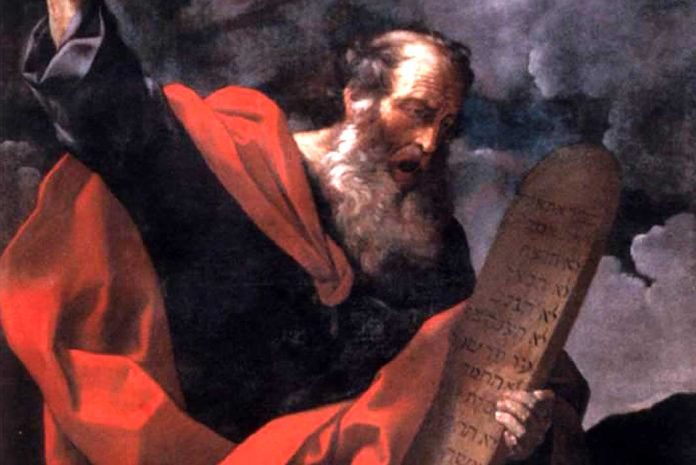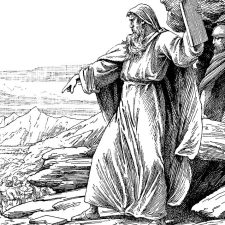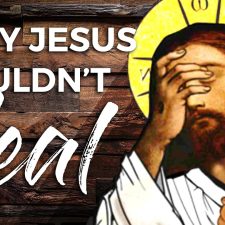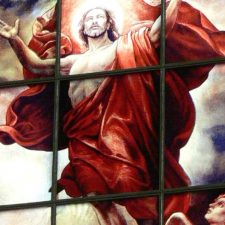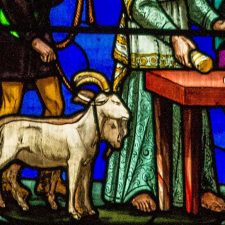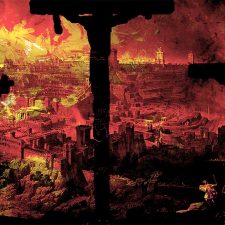From the time Abraham received promises from God in response to his faith in Genesis 12:1-3 (approximately 2000 BC) until God gave Moses the entire Law on Mount Sinai in Exodus 20 (approximately 1476 BC), the Hebrew nation functioned spiritually under this covenant God gave to Abraham that He would bless those who bless Abraham. For a number of those years, the Hebrews were held in bondage in Egypt by pharaohs until Moses was raised up to lead the nation across the Red Sea into the wilderness. The question arises as to why God would introduce the Law of Moses to His people when it was to be a temporary covenant, until such a time as Messiah would introduce the new covenant nearly 1,500 years later? What purpose did this old covenant serve?
In Galatians 3:19, Paul asks and then answers the question, “Why the Law then?” The conclusion is understood in the context of the covenant made with Abraham that the inheritance from the promise of God is not based on law, but through faith in the promise made to Abraham, who is the father of us all (Romans 4:16). The Law, then is added because of transgressions, meaning that it was intended to lead us to Christ, “so that we may be justified by faith” (Galatians 3:24). In verse 23, Paul explains that those who put their faith in the Law of Moses are being kept in custody under [the power of] the Law until Messiah would come. The benefits of spiritual life are realized by faith in God’s promises and not in the celebration of religious rituals and legal obedience.
A different gospel
The churches of Galatia were struggling with the influence of those who were teaching that Christians need to keep the Law of Moses in order to be justified into the Christian faith. There had been a Council led by James (Jesus’s half-brother) held in Jerusalem dealing with this matter and described by Luke in Acts 15. The results of that account were reported in Acts 15:19-20 where James states, “Therefore it is my judgment that we do not trouble those who are turning to God from among the Gentiles, but that we write to them that they abstain from things contaminated by idols and from fornication and from what is strangled and from blood.” Christians would not be required to keep the Law of Moses. This conclusion did not end the controversy and there remained those, known as Judaizers, who would continue to require it. Attempts like these continue to this day as men try to complicate the new covenant with old covenant and other man-made requirements.
In Galatians 1:6-7 Paul says, “I am amazed that you are so quickly deserting Him who called you by the grace of Christ, for a different gospel; which is really not another; only there are some who are disturbing you and want to distort the gospel of Christ.” When Jesus said He came to fulfill the Law of Moses (Matthew 5:17), He meant that there was to be a newly defined relationship with God, known as the new covenant (promised to Israel in Jeremiah 31) and enacted on better promises (Hebrews 8:6), therefore making the old covenant obsolete (Hebrews 8:13). The old covenant represents God’s perfect justice, but without the spiritual ability to fulfill it. It had to be kept perfectly or the follower would be classified as a transgressor (James 2:10).
Righteousness of the Law
In Romans 7:7-12, Paul further explains that “the Law is holy and righteous and good” (verse 12), but its intended purpose is to help followers of the Law to understand that righteousness is not derived from the Law, but that the Law makes sin come alive and exposes the sin that is “taking opportunity through the commandment” (verse 11) and deceives me resulting in separation from God (spiritual death). In 1Timothy 1:8-10, “But we know that the Law is good, if one uses it lawfully, realizing the fact that law is not made for a righteous person, but for those who are lawless and rebellious, for the ungodly and sinners, for the unholy and profane, for those who kill their fathers or mothers, for murderers and immoral men and homosexuals and kidnappers and liars and perjurers, and whatever else is contrary to sound teaching”.
In Romans 10, Paul addresses the Jewish nation of his day, clearly defining how the Law cannot lead to righteousness because Jews do not “subject themselves to the righteousness of God” (Romans 10:3), but rather their own ability to keep the law, otherwise known as “righteousness based on the law”, and that attempt produces a self-righteousness. God’s righteousness can never be earned (see Romans 4:4-5) but is received by faith in the One Who is righteous! Romans 10:4 summarizes the argument when it concludes “For Christ is the end of the law for righteousness to everyone who believes”. Faith in Jesus as the Christ is the only avenue to God’s righteousness (see John 14:6).
Righteousness by faith
According to Galatians 3:12-14, trying to be a Christian and yet attempting to live under the Law of Moses is a curse and Messiah had become a curse for us so that Jews and Gentiles “would receive the promise of the Spirit by faith”. This promise is only realized through a real faith in Jesus as Messiah, having trusted in His sacrificial death and resurrection and not in one’s own efforts to be or become righteous. In verse 11, Paul quotes the Old Testament passage found in Habakkuk 2:4 as his evidence and confidence: “THE RIGHTEOUS MAN SHALL LIVE BY FAITH”.
Under the old covenant, salvation came from God and was perceived to be experienced when one became a part of God’s people. Rahab, a Gentile is a good example of this principle, as Joshua 6:25 says: “However, Rahab the harlot and her father’s household and all she had, Joshua spared; and she has lived in the midst of Israel to this day, for she hid the messengers whom Joshua sent to spy out Jericho.” She became a Jew by believing in the God of Israel and acting on that faith. According to the Apostle Paul in Romans 9:8, “That is, it is not the children of the flesh who are children of God, but the children of the promise are regarded as descendants”. Faith in the God of Abraham, Isaac & Jacob has always been the avenue of salvation.
Uniting the Jew and Gentile
The new covenant encourages believers to assemble together often and all the more as the time of Jesus’s second coming draws near (Hebrews 10:25). The locations of the gatherings are not defined nor the particular means of worship, etc., unlike the old covenant. Yet the new covenant has ordained that both Jew and Gentile will come together since the dividing wall between the two has been broken down in Christ (Ephesians 2:14) and all are members of God’s household. This is only possible because the “Law of commandments contained in ordinances” is no longer a requirement and therefore peace is established between the two groups. In Romans 5:1, “Having been justified by faith, we have peace with God through our Lord Jesus Christ” Faith in Jesus as Christ resolves all divisions.
In Ephesians 2:20, Paul connects the foundation of the apostles [new covenant] and prophets [old covenant] as one foundation, meaning both groups now have the same foundation and it is not the Law of Moses. In Romans 3:21, Paul states, “But now apart from the Law the righteousness of God has been manifested, being witnessed by the Law and the Prophets”, meaning that the Old Testament Scriptures predicted that it would take a “prophet” (Messiah) Who will speak with God’s words as was given to Israel in Deuteronomy 18:15, “The Lord your God will raise up for you a prophet like me from among you, from your countrymen, you shall listen to him”.
Jesus Christ, our point of reference
The fact is that Messiah’s arrival did not create a large fanfare among the Jews (John 1:11) and the Jewish leadership fought constantly against His acceptance as the Promised One since it meant that their positions of leadership were threatened. Isaiah (53:1) warned of this rejection and was quoted by Paul in Romans 10:16-17, “However, they did not all heed the good news; for Isaiah says, “LORD, WHO HAS BELIEVED OUR REPORT? So faith comes from hearing, and hearing by the word of Christ.” As Galatians 3:24 states, the Law is intended to lead us to the Messiah. The point of reference is not the Law of Moses, but the person of Jesus Christ.
The Law of Moses included not only the moral law, but also the ceremonial law (Jewish festivals) as well as the worship requirements associated with the tabernacle and later the temple. In Hebrews 9, the writer begins the conversation of the “regulations of divine worship” associated with the tabernacle, including a description of the various elements within the tabernacle that became the center of worship for the nation while in the wilderness. The priestly activities associated with each of these elements was always intended to point to the Messiah as High Priest, who would be the fulfillment of eternal redemption. As an example, the lampstand represents Jesus as the light of the world (John 8:12) and the table of the sacred bread is a picture of Jesus as the bread of life (John 6:35). The daily priestly activities were always pointing to the coming Messiah! In Psalm 27:5, David says, “For in the day of trouble He will conceal me in His tabernacle; in the secret place of His tent He will hide me; He will lift me up on a rock” (a reference to Christ in 1Corintians 10:4).
Christ is the fulfillment
The Jewish festivals also have their fulfillment in the first coming and second coming of Christ. For example, Passover (Leviticus 23:4-5) was fulfilled at the Last Supper, Unleavened Bread (Leviticus 23:6-8) at Calvary, First Fruits (Leviticus 23:9-14) on Easter and Feast of Weeks (Leviticus 23:15-22) at Pentecost in Acts 2 and the coming of the Holy Spirit. These festivals are all celebrated in the spring. The final three festivals are references to the second coming of Messiah, Trumpets (Leviticus 23:23-25) to be fulfilled at the Rapture (1Thessalonians 4:16-18), Day of Atonement (Leviticus 23:26-32) speaks of the Tribulation, and Tabernacles (Leviticus 23:33-43) refers to the 1,000-year reign of Messiah (the Millennium). These last three festivals happen in the fall.
The 1,500 years of life under the old covenant was meant to reveal the person of Jesus as Messiah for those who were fully engaged with their hearts. The symbols and types associated with the old covenant worship are a direct link to Jesus Christ as Messiah and Jesus would become recognizable to many because of the connections to the various aspects of regular worship. The new covenant is the only covenant referred to in Scripture as eternal (Hebrews 13:20), meaning it has always existed as the fulfillment of the fullness of God in man.



